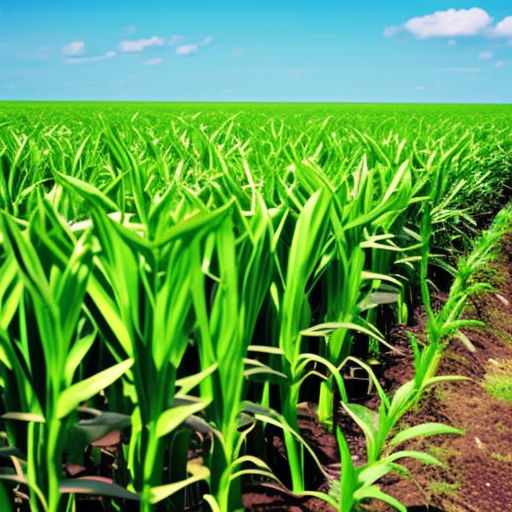Biofuels: A Sustainable Alternative to Fossil Fuels
Biofuels are renewable energy sources derived from organic materials, such as plants and animal waste, that can be used as a substitute for fossil fuels. They offer a promising solution to reduce greenhouse gas emissions and dependence on finite resources. This summary explores the different types of biofuels, their production processes, benefits, and challenges.
Types of Biofuels
There are three main types of biofuels: ethanol, biodiesel, and biogas. Ethanol is produced by fermenting sugars and starches found in crops such as corn, sugarcane, and wheat. Biodiesel is made from vegetable oils or animal fats through a process called transesterification. Biogas is produced by the decomposition of organic waste in the absence of oxygen, resulting in a mixture of methane and carbon dioxide.
Production Processes
The production of biofuels involves several steps. For ethanol production, crops are harvested and processed to extract sugars or starches, which are then fermented by yeast or bacteria to produce ethanol. Biodiesel is produced by reacting vegetable oils or animal fats with an alcohol, such as methanol, in the presence of a catalyst. Biogas is generated through anaerobic digestion, where organic waste is broken down by bacteria in a controlled environment.
Benefits of Biofuels
One of the main advantages of biofuels is their potential to reduce greenhouse gas emissions. When biofuels are burned, they release carbon dioxide, but the carbon emitted is roughly equal to the amount absorbed by the plants during their growth, making them carbon-neutral. Additionally, biofuels can help reduce air pollution, as they produce fewer pollutants compared to fossil fuels. They also offer economic benefits by creating jobs in the agriculture and biofuel industries.
Challenges and Concerns
While biofuels have many benefits, there are also challenges and concerns associated with their production and use. One concern is the competition for land and resources. Growing crops for biofuel production may lead to deforestation, increased water usage, and the displacement of food crops, potentially impacting food security. Another challenge is the energy-intensive nature of biofuel production, which requires significant amounts of water, fertilizers, and energy inputs.
Second-Generation Biofuels
To address some of the challenges associated with first-generation biofuels, researchers are developing second-generation biofuels. These are produced from non-food feedstocks, such as agricultural residues, wood waste, and dedicated energy crops. Second-generation biofuels have the potential to reduce competition with food crops and minimize environmental impacts. However, their commercial viability and scalability are still being explored.
Future Prospects
The development of advanced biofuels, such as algae-based biofuels and synthetic fuels, holds promise for the future. Algae can produce high amounts of oil, which can be converted into biofuels. Synthetic fuels, also known as e-fuels, are produced by capturing carbon dioxide from the atmosphere and combining it with renewable hydrogen. These advanced biofuels have the potential to further reduce greenhouse gas emissions and dependence on fossil fuels.
In conclusion, biofuels offer a sustainable alternative to fossil fuels, with the potential to reduce greenhouse gas emissions and promote energy security. Ethanol, biodiesel, and biogas are the main types of biofuels, each produced through different processes. While biofuels have several benefits, including reduced emissions and job creation, challenges such as land competition and energy-intensive production need to be addressed. The development of second-generation and advanced biofuels shows promise for a more sustainable future.












